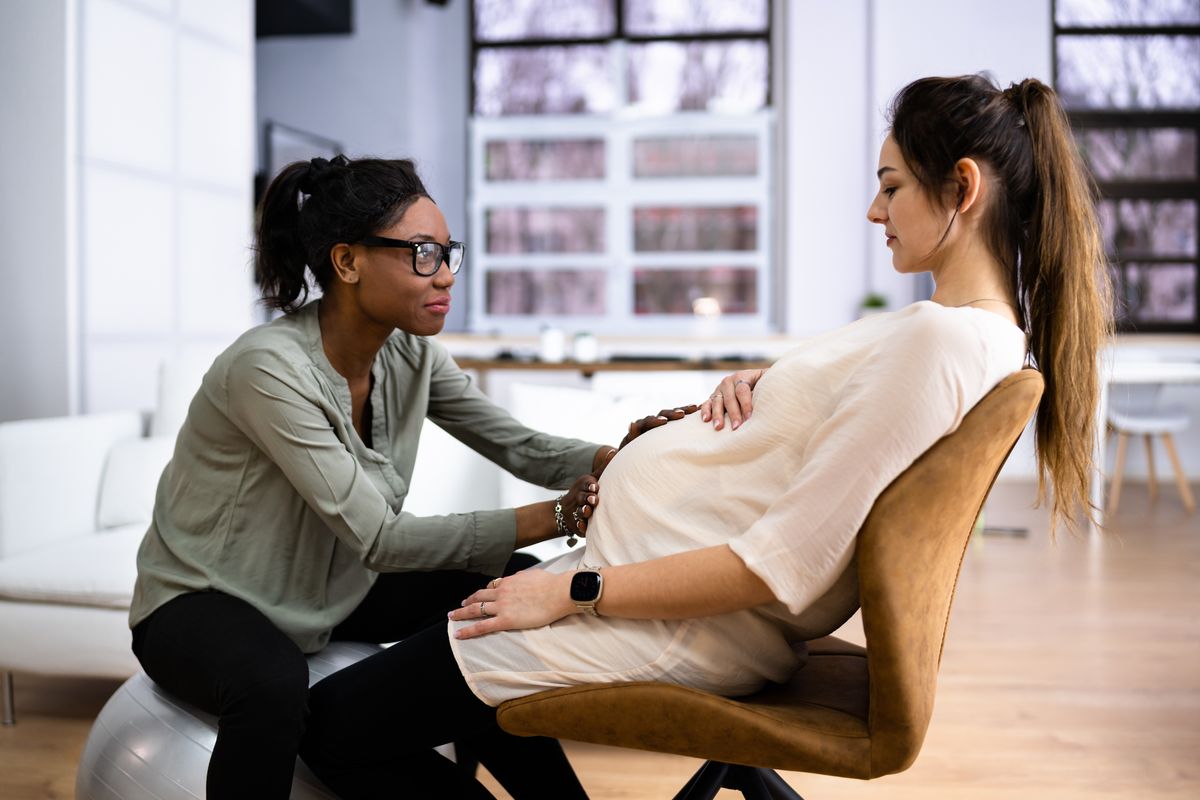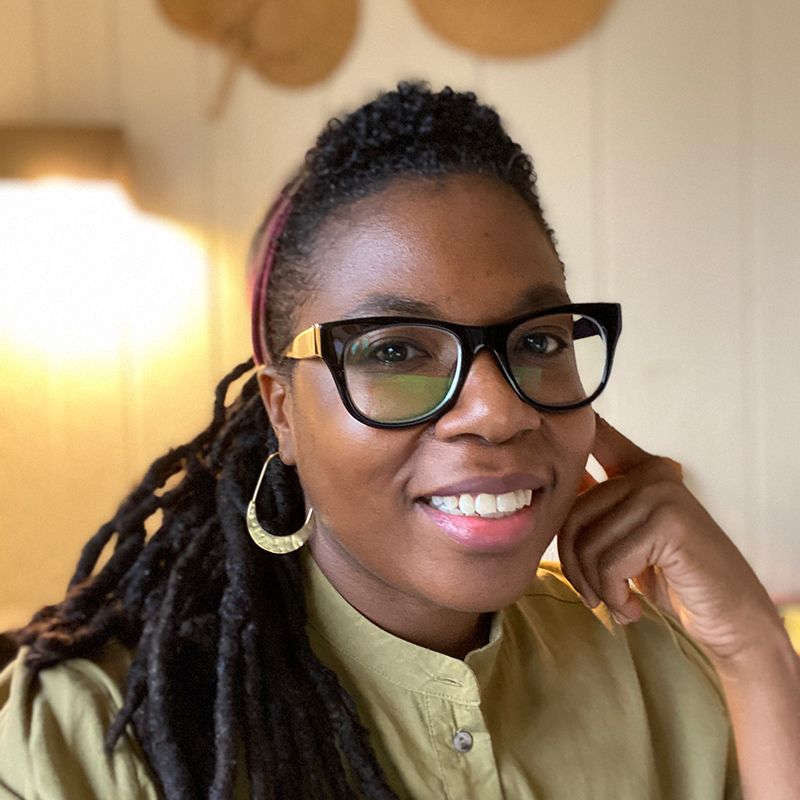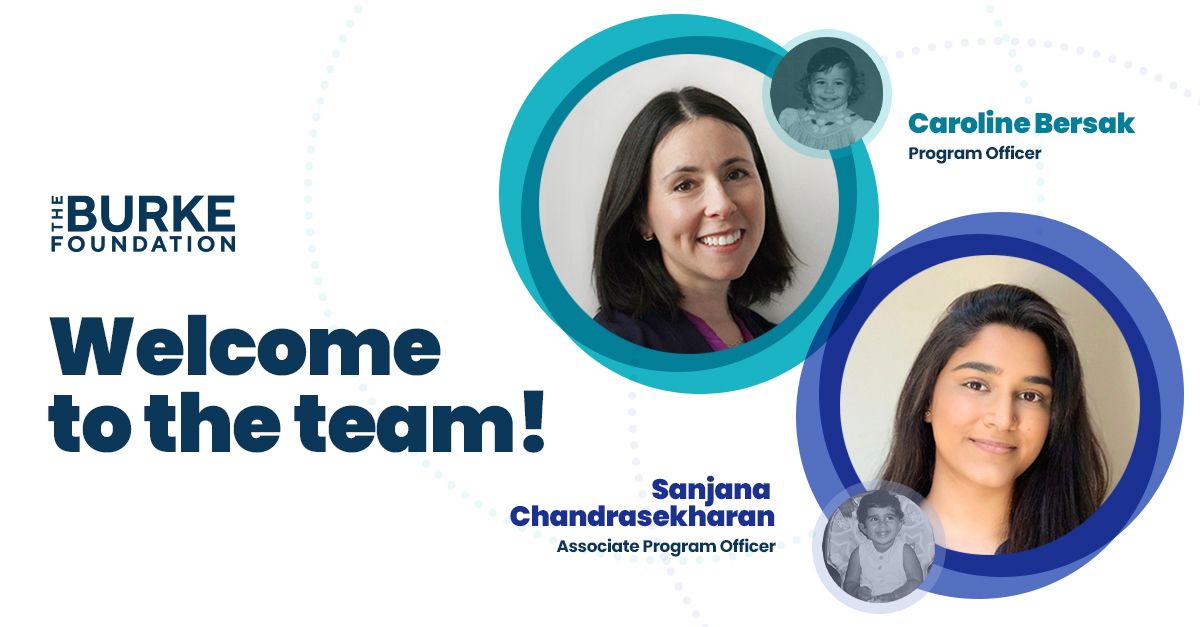👋 Too many pregnant women in New Jersey and across the United States have difficult – and sometimes tragic – birth experiences. The risks are greatest in communities facing discrimination: Black women in New Jersey are 7 times more likely than white women to die in childbirth and Hispanic women are 3 times more likely.
Elevating the role of community doulas — a major pillar of the Burke Foundation’s First 1,000 Days strategy to improve maternal, infant, and community health and well-being — is a proven solution for families. Doulas provide community-centered, culturally-aligned, family-focused care that can change — and save — lives.
Community doulas have a profound impact on family health and well-being. In my 20 years in public health, I’ve never seen better results than the AMAR community doula pilot program in Trenton, which so far has served 216 women. Participants experienced a 71.3% reduction in pre-term births and a 52.4% decrease in low-risk C-sections compared to all Medicaid births in Trenton. They were also more likely to exclusively breastfeed for longer periods — a key benchmark for healthy babies and bonding.
But doulas often are underpaid independent contractors struggling to make ends meet for their own families.
This issue of Starting Early delves into the role and value of community doulas in today’s challenging healthcare environment and shares an interview with Chanel Porchia-Albert, an influential doula, maternal healthcare advocate, and founder of Ancient Song, a national birth justice organization.
Atiya Weiss
Executive Director, the Burke Foundation
1 big thing: Maternal care of — and for — the community

Doulas have supported mothers around the world for centuries. They provide physical, emotional, and informational support before, during, and after delivery. But it goes deeper. Drawn from the culture and community of the moms with which they work, the services doulas provide include:
- Advocating for families’ healthcare preferences
- Facilitating communication with providers
- Sharing guidance with mothers’ loved ones
- Connecting families with community resources
- Providing breastfeeding assistance
Doulas complement the healthcare system as a partner in improving safe and equitable care in maternal health.
Building a caring community: Community doulas are a high-impact solution to New Jersey’s health disparities. Partnering with the Children’s Home Society of New Jersey, in 2018 Burke funded a pilot program called AMAR Community Doulas, providing Spanish-speaking doulas to support moms in Trenton.
- Promising results led to AMAR receiving a $631,500 federal grant to train and hire more community doulas and offer doula training and services to Black, Muslim/Arabic-speaking, and Eastern European-speaking women — reflecting New Jersey’s rich diversity.
Improving access: Doulas attend only about 2% of New Jersey births. One hurdle is access. For years, New Jersey hospitals weren’t required to allow doulas to offer their services on the premises. But a new state law championed by the state’s Nurture NJ initiative guarantees doulas access to New Jersey’s birthing hospitals.
Growing a thriving business: While crucial to supporting families, many community doulas are self-employed and struggle to support their own families. They often need to work several jobs and suffer from burnout, prompting many to leave the field after only 2-3 years. Among the challenges:
- Difficulty navigating the Medicaid and managed-care billing systems
- Low wages
- Inadequate reimbursement rates and delayed payments
That’s why, in 2019, New Jersey made doulas eligible for Medicaid reimbursement. But that’s not enough. The Burke Foundation is partnering with Civitas Strategies to help doulas establish stable, profitable practices. The effort includes a digital platform with a resource library of interactive sessions, self-training on how to sustain a small business, and a coaching component. We’re committed to sustainably growing the doula workforce in consultation with doulas throughout the state.
The bottom line: When doulas are on the maternal support team, families experience fewer low-risk c-sections and pre-term births, higher rates of exclusive breast-feeding, and fewer infant deaths. As members of the community they serve, doulas help build trust through their understanding of the challenges facing families embarking on the biggest journey of their lives.
Rethinking community maternity care: an interview with Chanel Porchia-Albert

Chanel is founder and executive director of Ancient Song, a reproductive health and advocacy organization that provides resources and full-spectrum doula services to women of color and marginalized communities in New York and New Jersey. She’s a respected leader on the topic of birth justice and promotes a model of maternity care that relieves the burden on families.
What is something you wish people knew/understood about community doulas and the work you do?
I’d like people to understand that community doulas are extensions of the community care frameworks for women, birthing people, and families. Their lived experiences as community members inform how they interact with individuals who are pregnant and parenting because the doulas might also be parents.
I’d like them to understand what it means to build a framework that is culturally congruent or culturally humble. And to understand that the lived experiences of individuals are very different, although they may be within the same ecosystem — understanding that there’s no one-size-fits-all approach to care.
What are the barriers to success for community doulas and their family clients?
In a very disjointed healthcare infrastructure, the doula is seen as this clothespin to bring all of it together when, in actuality, it’s a bigger problem. The support that needs to be in place to center someone within their birthing experience or their episode of pregnancy, is fractured, fragmented.
Maternal health, in general, doesn’t work for anybody. Black, white — I don’t care who you are — it doesn’t work for anyone. But then when you get into specific groups, then you see further disenfranchisement. When you bring in gender, when you bring in language, immigration status, folks who are unhoused, you have a doula trying to fix an infrastructure that historically has not centered these groups.
What is the doula expected to be able to actually do? Is it to just stay in a space and hold someone’s hand and say, “you got this” and connect you with some resources?
Or will we also elevate the other structural problems, such as a lack of healthcare providers, unwillingness to move away from frameworks that traditionally haven’t worked, an infrastructure monopolized by consortiums that have historically not centered those who are most disenfranchised where they reside?
If you see a problem, the only way to solve the problem is by shifting the ways in which you are working every single day. You can’t keep approaching a problem the same way over and over again and expect a different result.
What are the best solutions for improving access to doula care and success for community doulas?
There are tools that could be used that already exist. Maternal mortality review committees should include more community representation, not just doctors. Ensure that doulas and those with lived experiences and community members and your aunties and grandmas as well as police officers and teachers, and anyone who comes in contact with someone who is pregnant, is involved in those processes.
The goal is not to put all of the burden on the patient. It should also be the responsibility of the institution as well as the providers.
Hospitals need to not just incorporate implicit bias training but set a standard for accountability. And that accountability needs to be connected to community advisory boards that meet monthly. As they serve community, they’re giving feedback in real time.
What are you optimistic about?
I’m very happy that the conversation around doulas and maternal health and maternal mortality is being uplifted. It gives me hope because the conversation wasn’t happening at all for years or, if it was, it was used as a footnote.
I’m hopeful about community-based doulas who show up every single day and do this work knowing that they’re not necessarily seen or heard.
I’m hopeful about community-based organizations that struggle to get funding and to sustain themselves, but still have the willingness to provide services to their communities with what they have.
I’m hopeful about seeing the children who come into the world.
I’ve served all kinds of people from all different walks of life. And the one thing they all have in common is they just want to live. They want to center their families. That’s it. And that just gives me hope at the end of the day.
Read our full interview with Chanel Porchia-Albert.
1 smile to go: 2 new Burke team members

🤝 We’re pleased to welcome to the Burke Foundation team Caroline Bersak, program officer, and Sanjana Chandrasekharan, associate program officer.
Carrie is a lawyer with nearly 20 years of nonprofit experience, including working with under-resourced families dealing with serious illness or disability. She has a depth of knowledge about social determinants of health and public benefits.
Sanjana’s career has focused on maternal and early care workforce policy. Before joining the Burke Foundation, she was a key player in the implementation of a 2-generational approach to workforce development at the New Jersey Department of Labor & Workforce Development. She is passionate about promoting the health and economic security of mothers, babies, and families in marginalized communities.
Carrie and Sanjana will continue to grow the Burke Foundation’s catalytic investments in the First 1,000 Days.
The roundup
- Celebrating our partners: The Children’s Home Society of New Jersey holds its 130th Anniversary Gala in Princeton April 6 honoring Debbie Harry of the iconic band Blondie🎵 and Burke Foundation President James Burke. 🎬
- Join the conversation: The Maternal Infant Health Hub’s in-person Midwifery Convening April 25 will highlight legislative updates, opportunities to modernize the profession in New Jersey, and the MIH Hub’s toolkit to promote awareness of midwifery. Midwives, healthcare stakeholders, and legislators are encouraged to attend.
- Leading the way: The Maternal Mental Health Equity Fund recently announced Perinatal Health Equity Initiative in East Orange, NJ as one recipient of a grant designed to fund a national cohort of organizations delivering models of care that are built in and by Black, Indigenous, and People of Color (BIPOC) communities.
- Cultivating leaders: Applications are open for the 2024-2026 ZERO TO THREE Fellowship, an intensive professional development program that brings together early childhood professionals from around the globe.
